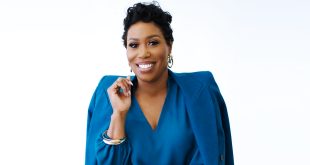WASHINGTON, D.C. – A Colorado legal battle over what’s known as conversion therapy has reached the U.S. Supreme Court. In this case, licensed therapist Kaley Chiles argues her freedom of speech is being violated under a state law that bans therapy aimed at reducing or changing same-sex attraction for minors.
Chiles, a practicing Christian, says a Colorado law censors open conversations with clients about faith and identity. “If I am having my free speech chilled and I can’t be transparent and honest, then that’s a real disservice to them,” Chiles says in a video produced by the Alliance Defending Freedom, the legal group representing her.
The justices will hear arguments in Chiles v. Salazar starting Tuesday morning in a case that could set national precedent around professional speech and religious liberty.
ADF attorney Kate Anderson defends Chiles’ right to offer counseling to those seeking to align their feelings with their beliefs. “This is voluntary therapy where a client is there for counseling conversations, asking to fulfill their own goals, which include aligning their biological sex with the way that they feel with their gender and feeling like they can live according to their faith,” Anderson said.
Sarah Parshall Perry, with Defending Education, argues the law is one-sided. “The Colorado law prohibits conversations designed to change orientation or gender identity but allows conversations that affirm them,” she said.
The American Psychiatric Association, American Medical Association, and American Academy of Pediatrics oppose so-called conversion therapy, contending it can lead to depression, low self-esteem, and even suicide. Colorado Attorney General Phil Weiser says the state’s law is grounded in medical consensus. “It doesn’t work and has no basis, and regardless of how it’s performed,” the lawyer argued.
In a statement, Weiser said the law “does not prevent health care professionals from sharing information, content, or viewpoints with a patient or others” and “does not require therapists to ‘affirm’ any orientation or identity.”
Critics argue Colorado has a pattern of policies that discriminate against people of faith, citing past cases like that of Jack Phillips, the baker who declined to make cakes celebrating same-sex weddings and gender transitions, and a web designer who declined same-sex wedding services.
Perry pointed to another recent example. “Colorado also recently passed a law, HB 1312, that demands the use of so-called preferred pronouns in any space of public accommodation.”
Last year, the 10th Circuit Court upheld the state’s conversion therapy ban for minors, ruling that it regulates professional conduct, not speech. That distinction is now in question at the Supreme Court.
LGBTQ advocacy groups are warning the case could set a dangerous precedent. Colorado is one of 24 states plus Washington, D.C. that ban so-called conversion therapy for minors. Five states have partial bans. Four others, including Alabama, Georgia, Indiana, and Florida, prohibit such bans altogether.
“For the health of our LGBTQ patients, it is crucial that the practice of conversion therapy be banned nationwide,” said Cynthia Peng with Doctors for America.
ADF attorney Kate Anderson says the implications go far beyond Colorado. “Think about the implications if we start pulling back on the free speech of professionals in this country,” she said.
Under Colorado law, counselors like Chiles risk fines and suspension or revocation of their licenses. The Supreme Court is expected to rule by June.
Source link



